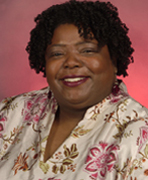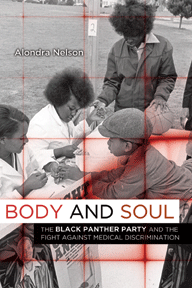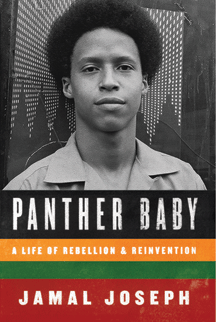|
Entertainment
Serving the People: Healing and Hope
By Ida Jones, PhD

The 1960s often evoke a flood of emotions for many people. Two recently released powerful books expose elements of the Black Panther Party (BPP) that explore and explain part of this moving period: Alondra Nelson’s Body and Soul: The Black Panther Party and the Fight Against Medical Discrimination ($24.95, University of Minnesota Press) and Jamal Joseph’s Panther Baby: A Life of Rebellion and Reinvention ($23.95, Algonquin Book).
Body and Soul provides a full portrait of the BPP’s medical services employed to alleviate the lack of preventive medical services for Black people. Concurrently, in Panther Baby, Joseph shares his memoirs as a young adult whose thirst for belonging resulted in his joining the BPP and ultimately serving time in prison. Together, these books move the superficial reviews of the BPP to the background and provide a platform for two distinct voices of “the people” the BPP sought to serve and protect.
 As explained by Nelson, the BPP knew that racism stigmatized Black people and the results included misdiagnosis or inappropriate medical treatment. Diseases such as sickle cell anemia, diabetes, hypertension and asthma plague Black people and resulted in Blacks having high and rising mortality rates. To counter this, the BPP linked the lack of health care to the weak, but burgeoning Black political agenda. As explained by Nelson, the BPP knew that racism stigmatized Black people and the results included misdiagnosis or inappropriate medical treatment. Diseases such as sickle cell anemia, diabetes, hypertension and asthma plague Black people and resulted in Blacks having high and rising mortality rates. To counter this, the BPP linked the lack of health care to the weak, but burgeoning Black political agenda.
Nelson writes that the BPP’s activism demonstrated how the physical Black body came to represent the broader treatment of Black people in America. Moreover, her innovative work offers another perspective on the social justice activism the BPP employed versus the media-driven gun-totting, rebellious Black youth image that too often comes to mind.
Conversely, Panther Baby is a riveting coming of age story. Jamal’s (formerly Eddie Joseph) memoir, opens with an explanation of the male social hierarchy (punk, hard, bad or crazy) of New York’s ghettos in the late 1960s. The most desired positions were to be hard or bad. Linked to the ranking system was one’s ability to protect one’s property, such as sneakers or mother’s honor. Joseph described himself as an orphan, church boy and honor student who in 1968, at the age of 15, sought to gain credibility as a hard or bad dude, not a punk.
 In April 1969, police arrested Joseph and charged him with conspiracy to commit murder and sent him to Rikers Island jail for 11 months, as part of the Panther 21 group. Joseph reveals a lot about prison life and disillusionment within the BPP. In the 1970s, his life involved public speaking with Afeni Shakur and learning about his Afro-Cuban heritage. Joseph closes his story with the earnest desire to believe there is hope and a future for all people. In April 1969, police arrested Joseph and charged him with conspiracy to commit murder and sent him to Rikers Island jail for 11 months, as part of the Panther 21 group. Joseph reveals a lot about prison life and disillusionment within the BPP. In the 1970s, his life involved public speaking with Afeni Shakur and learning about his Afro-Cuban heritage. Joseph closes his story with the earnest desire to believe there is hope and a future for all people.
Both books force the reader to contemplate the impact BPP’s activism had on many lives and the public policies we inherited. The revelations about the health care fight and the memoir of a survivor add a needed dimension to the BPP’s efforts to reconstruct Black society through social justice.
After 15 years of being a print publication, we are going completely green. Read this and Jones' future book reviews (that we send via e-mail to you) or on Jones' page at PortOfHarlem.Net. Encourage your friends to get Snippets directly by signing up for Snippets today!
|